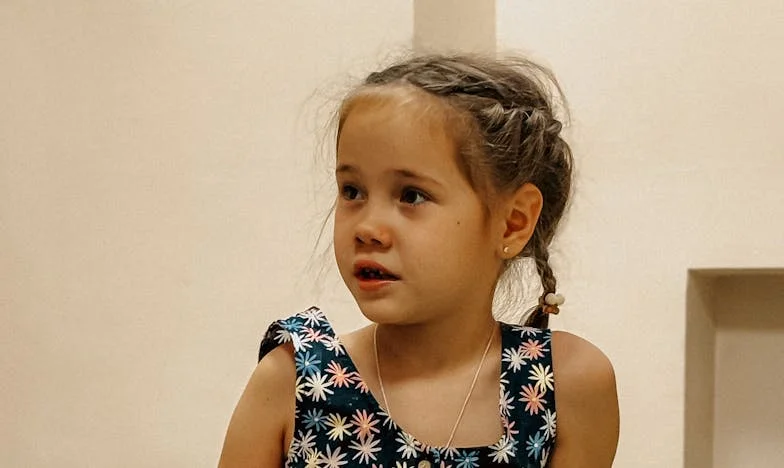The Perfect Husband: A Story of Expectations, Possession, and Breaking Free
“Emily, you can’t just walk away from a marriage because you’re not ‘happy’!” My mother’s voice was sharp, slicing through the humid August air of our cramped kitchen in suburban New Jersey. I stared at the faded linoleum, stalling, afraid to meet her eyes. I could hear Dad in the den, pretending to watch the ballgame, but every few seconds the volume would dip—he was listening, always listening.
I tightened my grip on the coffee mug, feeling the cracks in the ceramic dig into my palm. I wanted to scream, to tell her how the man she had called the perfect son-in-law had made me feel like a stranger in my own body. But the words tangled in my throat. Instead, I whispered, “It’s more than that, Mom.”
She scoffed. “You know how many women would kill to have a husband like Ryan? He’s got a good job, doesn’t drink, doesn’t cheat. And you—you want to throw that away for what, ‘feelings’?”
I wanted to laugh—hysterically, maybe. She had no idea. None of them did. The world saw Ryan as the golden boy, the consultant with the charming smile and the shy, respectful handshake. But behind closed doors, his words were daggers, and his love was a cage.
I remember the night it started. We had just moved into our condo, a wedding gift from his parents. I was unpacking dishes, humming, when he walked in, silent. He took one look at the mismatched mugs I’d arranged on the shelf and said, coldly, “Why do you never do anything right?”
I laughed, thinking he was joking. But his face was hard, his eyes flat. “I asked you to keep the sets together. You don’t listen, Emily. Ever.”
It was small, just a flicker of anger. But it grew, day by day. First the criticism, then the rules. I couldn’t wear red lipstick because it was “cheap.” I couldn’t see my best friend, Lauren, because she “gossiped too much.” He checked my phone, my emails, my receipts. He called me at work, at the grocery store, at yoga class. I started to shrink, to fold myself up into something smaller, quieter, more agreeable. I told myself he was just protective. That he loved me.
But love shouldn’t feel like being watched all the time, should it?
It got worse after I lost my job. The layoffs came without warning, and I called Ryan, sobbing in the parking lot. He didn’t ask if I was okay. He asked, “How could you let that happen?”
He started locking me out of our bank account. I’d have to ask for twenty dollars for gas, for groceries, for tampons. Sometimes he’d say no, just to see me squirm. The first time he shoved me, it was over a late credit card payment. I tripped, hit the edge of the dining table. He apologized with flowers the next day, told me he was sorry, that he just wanted what was best for us. I believed him. I wanted to believe him. Because the alternative—that I’d married someone who could hurt me—was too terrifying to face.
But the bruises got harder to hide. I wore long sleeves in June. I stopped calling Lauren. At Thanksgiving, my niece asked why I’d lost so much weight. I laughed it off—”wedding diet that never ended”—but my sister gave me a look I couldn’t quite read. And still, I said nothing. Because my parents adored him. Because divorce was failure. Because, in my family, you stuck it out. You made it work.
One night, after a particularly ugly fight, I sat in the dark, knees tucked to my chest, and listened to him snoring in the next room. My heart was racing. I thought about what my mother would say: “Marriage isn’t easy. You have to compromise.” But was compromise supposed to feel like disappearing?
It was Lauren who finally broke through to me. She showed up at my office with coffee and a look that brooked no argument. “You’re not yourself,” she said, blunt as always. “I know something’s wrong.”
I broke down. Right there, in the parking lot, sobbing into her shoulder. When I told her everything, she didn’t say anything for a long time. Then she said, “You don’t have to stay. You know that, right?”
I didn’t know. Or maybe I just needed someone to say it out loud.
It took three more months. Three months of hiding cash in a tampon box, of researching shelters and lawyers on my office computer. Three months of pretending everything was normal when my insides felt like they were burning. The last night, he grabbed my wrist so hard I thought something snapped. I locked myself in the bathroom and dialed Lauren. “I need to go,” I whispered. “Now.”
She was at my door in twenty minutes. We didn’t take much—just a duffel bag, my passport, my grandmother’s locket. I left a note on the kitchen table: “I’m done.”
My parents were furious. My mother cried, my father barely spoke. “How could you do this to him? To us?” they asked. I didn’t have an answer. Maybe I was selfish. Maybe I was finally brave.
It’s been two years. I still flinch when I hear footsteps behind me. I still check the locks three times before bed. But I’m learning to take up space again, to laugh too loud, to wear red lipstick. Lauren and I sit on her porch some nights, wine in hand, and she makes me promise that I’ll never let anyone make me feel small again.
Sometimes, late at night, I wonder: why do we let other people decide what’s good for us? Why do we silence ourselves just to fit into someone else’s idea of perfect? If you were me, would you have found the courage to walk away?
